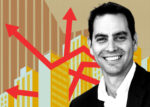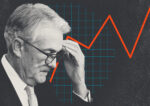Rising interest rates haven’t just roiled the residential market in recent months — they’ve also taken a sizable bite out of commercial property prices.
Commercial prices are down 13 percent from their May peak, according to Bisnow. The Green Street Commercial Property Price Index, which tracks prices for transactions being negotiated or contracted, showed prices declined 7.3 percent in October alone. No commercial sector has been spared from the downturn. Shopping malls took the biggest hit, down 23 percent from the peak. But industrial real estate prices, one of the hottest property types during the pandemic, are down 17 percent.
Other property types to take a double-digit hit in prices from the peak include apartments, offices, healthcare assets and strip centers. The more resilient property types were hospitality and self-storage assets, down 6 percent.
Read more



The culprit is a familiar refrain across the market: higher interest rates.
“Higher yields on Treasury bonds equals higher cap rates,” said Peter Rothemund, co-head of strategic research at Green Street. “As large as the decline in pricing has been, I don’t think we’re out of the woods.”
Rothemund added that commercial property prices were likely to keep dropping so long as the 10-year Treasury note stays above 4 percent. It’s an argument growing louder in the commercial sector, echoing a similar sentiment from a real estate executive regarding the beleaguered office market.
Commercial buyers are trying to hedge against rate hikes with variable-rate loans, but that’s not any easier. The cost of some of those derivatives, essentially interest-rate caps, has grown by a factor of 10.
The pain will likely keep up for the foreseeable future. The Federal Reserve last week approved a fourth straight 75-basis-point hike to a target range of 3.75 to 4 percent, raising short-term borrowing rates to the highest levels since 2008. A glimmer of hope came with the rate hike, though, as the Fed indicated smaller raises may be on the horizon as it continues to fight 40-year high inflation.
— Holden Walter-Warner
